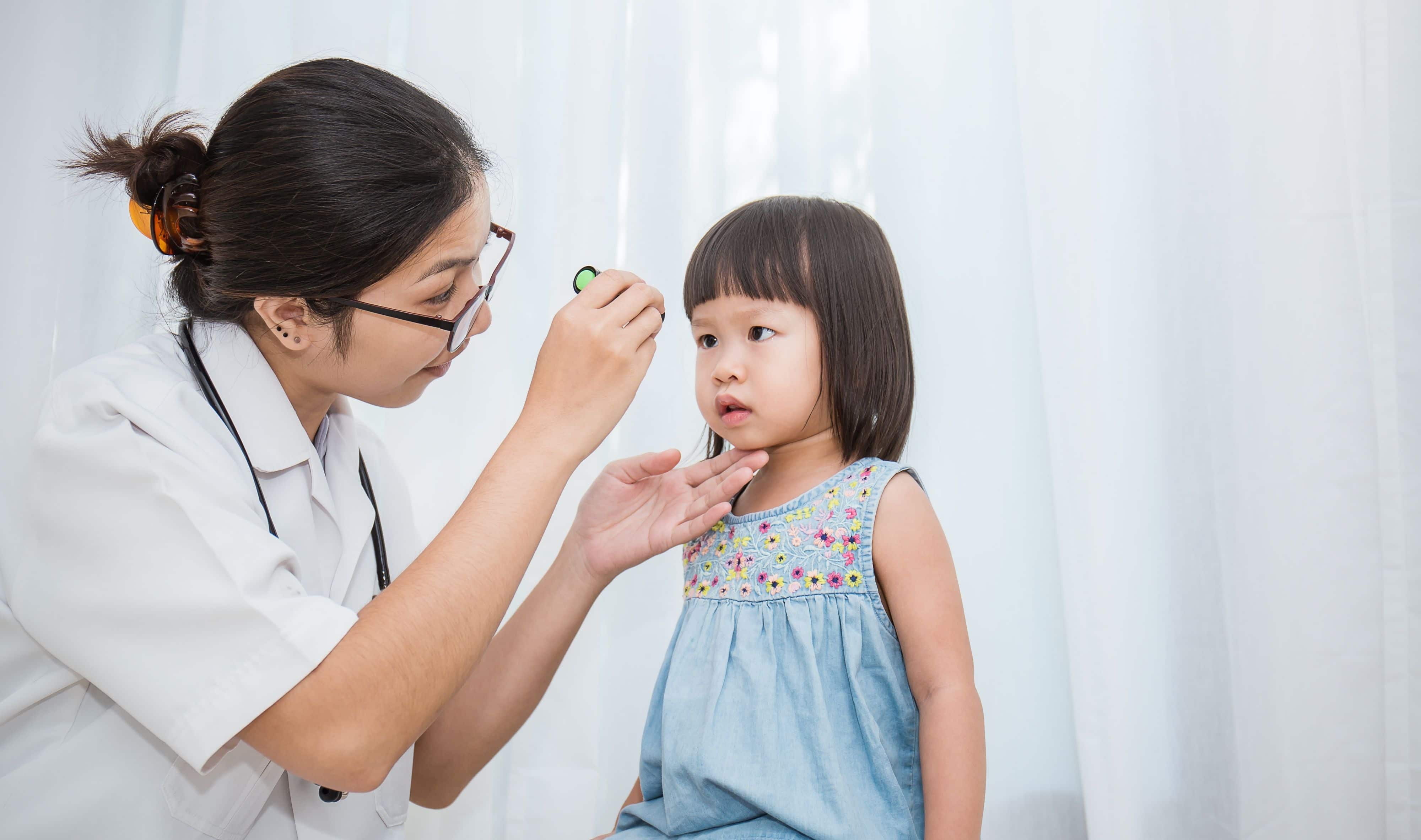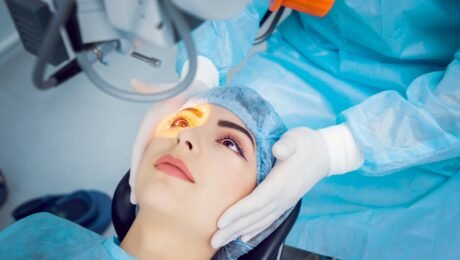It is important to do periodic eye examinations
It is important to do periodic eye examinations
[/vc_column_text][/vc_column][/vc_row][vc_row][vc_column][vc_single_image image=”9392″ img_size=”full”][/vc_column][/vc_row][vc_row][vc_column][vc_column_text]Periodic eye examination require a series of tests to be able to evaluate sharp eyesight and determine the eye disease. Just like in dental health, to get good eye health you also must have your eyes checked regularly. Especially for those who are nearsighted or near and already use glasses or contact lenses for vision aids every day.An eye exam requires a series of tests to be able to evaluate sharp vision and determine which eye disease you are suffering from. The eye doctor will use various instruments to perform the examination. During the examination, several aspects will be evaluated, especially those related to your vision ability and eye health conditions in general and specifically.
Why is this done?
Periodic eye examination will help detect problems at their earliest stages, which is when they are easier to treat if they are present. Regular eye examinations will provide an opportunity for your eye doctor to help correct and can provide tips on caring for your eye health or provide appropriate treatment, in case of sharp changes in vision or other conditions compared to the results of previous examinations.
When to have an eye exam?
Several factors can determine how often you need an eye exam. Factors that play a role include age, the presence of systemic diseases (diabetes mellitus, hypertension, etc.) which can cause complications in the eye, or eye disease.

General guidelines are as follows:
Children 3 years and under
For children under 3 years of age, your pediatrician will look for the most common eye problems such as lazy eyes, crossed eyes or misaligned eyes. If there are any such eye problems or symptoms, it can be done immediately at that time regardless of age. Your child can have a more comprehensive eye exam between the ages of 3 and 5.
School-age children and adolescents
Check your child’s vision before entering first grade. If it turns out that your child has no visual symptoms and there is no family history of visual disturbances, have his eyes checked again every one or two years. If there are symptoms of visual disturbances and require correction of the glasses. Periodic eye examinations can be performed between 6 months and 1 year.
Adults
In general, if your eyes are healthy and you have no visual symptoms, get your eyes checked on the following schedule:
1.Every 5 to 10 years in their 20s and 30s
2.Every 2 to 4 years from 40 to 54
3.Every 1 to 3 years from 55 to 64
4.Every 1 or 2 years after age 65
5.Every 1 or 2 years after age 65
Get your eyes checked more frequently if you:
- Eyeglass or contact lens wearers
- Have a family history of eye disease or vision loss
- Having a chronic systemic disease that puts you at a greater risk of eye diseases, such as diabetes mellitus
- Take medications that have serious eye side effects, such as several types and forms of corticosteroids.
- Published in Mata
What Are The Best Vitamins For Eye Health?
What Are The Best Vitamins For your Eye?
[/vc_column_text][/vc_column][/vc_row][vc_row][vc_column][vc_single_image image=”9377″ img_size=”full”][/vc_column][/vc_row][vc_row][vc_column][vc_column_text]Hello Happy Eyes People!Your eyes are complex organs that need lots of vitamins to function properly. Certain vitamins are essential for maintaining good eye health. Many are powerful antioxidants that protect the eyes and other parts of the body from oxidative damage and inflammation.
Deficiencies in particular vitamins can increase the risk of some eye conditions, such as cataracts, glaucoma, and age-related macular degeneration (AMD).
Research shows that some vitamin and mineral supplements can help protect against or slow the progression of the condition.
In this article, we outline four vitamins that are essential for good eye health, as well as a list of various vitamins from food sources. Let us see together!
4 vitamins that contribute to eye health
People who want to protect their eye health should consume adequate amounts of the vitamins in their diet.
1. Vitamin A
Vitamin A is essential for good vision. It is a component of the protein Rhodopsin which allows to eye to see in low light conditions.
Vitamin A also supports the function of the cornea, which is the protective outer layer of the eye. A person who is deficient in vitamin a may find that their eyes produce too little moisture to stay lubricated.
2. Vitamin E
Alpha tocopherol is a form of vitamin E that has particularly powerful antioxidant properties. Antioxidants help fight free radicals, which can damage tissues throughout the body. Sometimes, free radicals may damage proteins within the eye. This damage can result in the development of cloudy areas called cataracts.
A 2014 review looked at studies linking vitamin E to the prevention of cataracts. Some of the research found that lens clarity was better in people who took Vitamin E supplements.
3. Vitamin C
Vitamin C is another powerful antioxidant that helps protects against oxidative damage. Oxidative damage is a key factor in two of the most common age-related cataracts. Cortical cataracts develop on the edges of the lens, while nuclear cataracts occur deep in its center or nucleus.
4. B Vitamins
A 2009 study suggest that daily supplementation with a combination of vitamins B-6, B-9, and B-12 may reduce the risk of AMD. AMD is a degenerative eye disease that effects the vision.
However, this particular study only includes women. Therefore, more research is needed to support the use of B vitamins in preventing AMD in both women and men.
An older study looked at nutrient intake and eye health in 2,900 people between the ages of 49 and 97 years. The findings revealed that higher intakes of protein, vitamin A, and the B-vitamins riboflavin, thiamine, and niacin had an association with a lower rate of nuclear cataracts.
Food sources of this vitamin
A healthy, balanced diet containing the following foods can provide enough vitamins and nutrients to promote eye health. Research suggests that these nutrients work together to protect the eye, so eating a wide variety of healthy foods is the best approach and way to keep your eyes healthy.
Below, we list the vitamin food sources we mention in this article.
1. Vitamin A and beta carotene:
- Sweet potato
- Carrot
- Red pepper
- Pumpkin
2. Vitamin E:
- Almonds
- Sunflower seeds
- Peanuts
- Safflower oil
- Soybean oil
- Corn oil
- Wheat germ oil
- Asparagus
3. Vitamin C:
- Oranges and orange juice
- Broccoli
- Brussels sprouts
- Blackberry
- Grapefruits juice
4. Vitamin B-1, or thiamine:
- Beans
- Lentils
- Pork
- Fish
- Green beans
- Yogurt
5. Vitamin B-2, or riboflavin:
- Beef
- Oat
- Yogurt
- Milk
- Clams
- Mushrooms
- Almonds
6. Vitamin B-3, or niacin:
- Beef liver
- Chicken
- Salmon and tuna
- Brown and white rice
- Peanuts
7. Vitamin B-6, or pyridoxine:
- Chickpeas
- Dark leafy greens
- Poultry
- Beef liver
- Salmon and tuna
8. Vitamin B-9, or folic acid:
- Dark leafy greens
- peanuts
- Beans
- Seafood
- Sunflower seed
- Egg
9. Vitamin B-12, or cobalamin:
- Fish
- Heart
- Red meat
- Poultry
- Egg
- Fortified milk, cereals, and nutritional yeast
Consuming foods that contain vitamins is particularly good for maintaining a healthy body. Do a consultation on your eye health with our doctor at Ciputra SMG Eye Clinic to regularly check eye conditions.
Source:
What are the best vitamins for eye health?[/vc_column_text][/vc_column][/vc_row]
- Published in Featured Article, Featured Article, Health Talk, Health Talk, Mata, Mata




